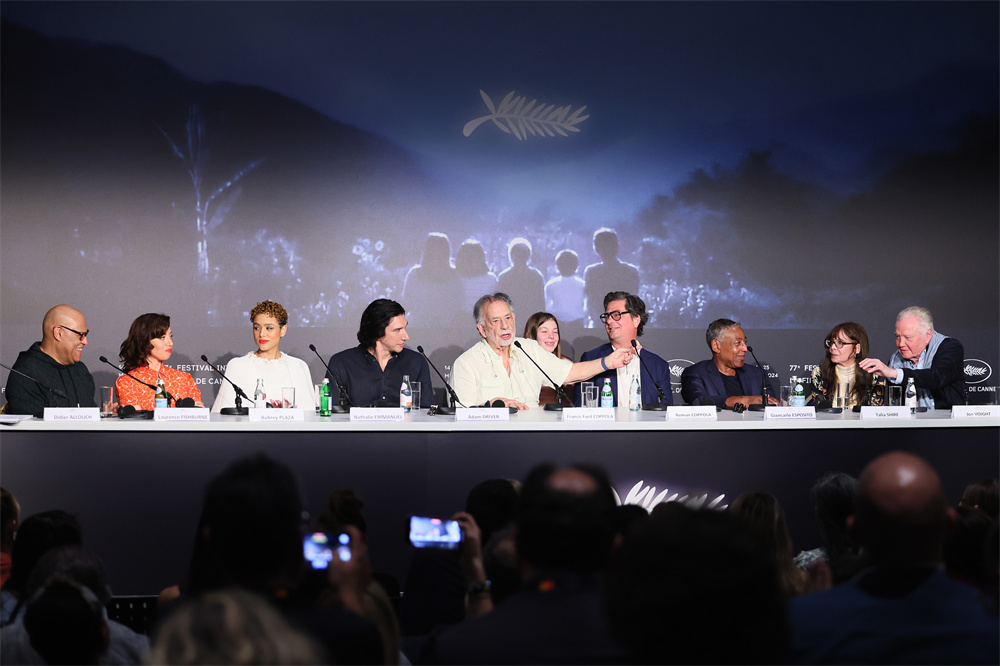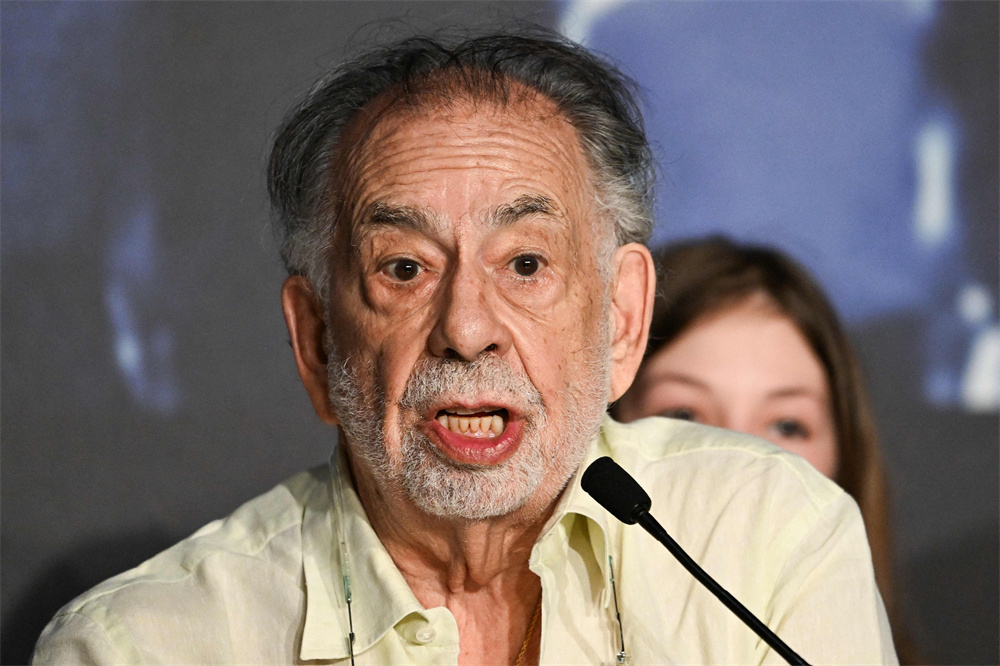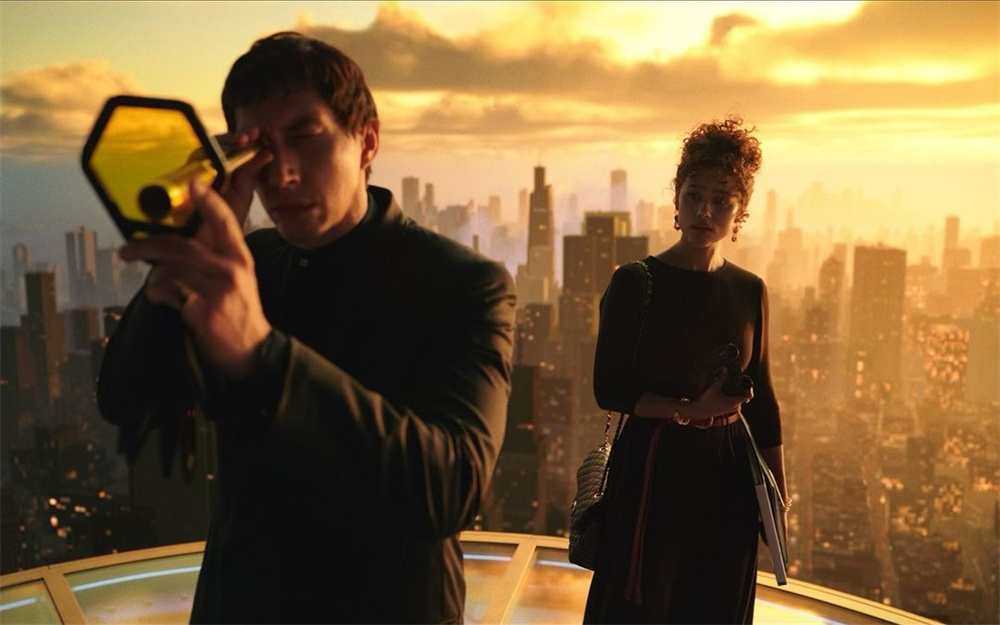
On May 17th, local time, Francis Ford Coppola's highly anticipated new film "Megalopolis" held a press conference in Cannes. Just the day before, this shortlisted film in the main competition unit of the Cannes Film Festival had completed its world premiere. Although it received seven or eight minutes of applause from the audience, the immediate media response was not unanimous praise, but a clear polarization, which made people worry about the old director who raised funds to shoot the film.

On May 17, 2024, local time, France, the 77th Cannes Film Festival, the indoor press conference of the movie "Metropolis". Visual China Photo
What's even more unfavorable is that on May 14, not long before the premiere of "Metropolis", the British "Guardian" published an exclusive article, ruthlessly revealing various secrets of the film's shooting, and citing the testimonies of many unnamed crew members, emphasizing that "a lot of time and energy were wasted" in the production of the film, the script "was rewritten at least 300 times", and "halfway through the shooting, most of the visual effects and art team staff were fired or resigned themselves".
The Guardian report also quoted an anonymous crew member as saying, "He often just sat there for hours, not talking to anyone, just smoking marijuana... Everyone had to wait, and hours passed, but nothing was shot. Sometimes, the crew and actors were waiting, and then suddenly he would come up with a meaningless idea that had nothing to do with the content of the script. It may seem crazy to say it, but sometimes we really wondered, 'Has this guy made a movie before?'"
Compared with these purely technical revelations, the more fatal revelation in the Guardian article is the vague hint of "male-female issues". The reporter quoted eyewitnesses and revealed that Coppola once tried to forcefully kiss an extra on the set, and also encouraged a female extra to sit directly on his lap.

Director Francis Ford Coppola at the film's press conference. Photo courtesy of Visual China
The article was published at a time when the anti-sexual assault movement in the French film industry was making waves again, and Hollywood is now extremely sensitive to such incidents involving sexual harassment. The Guardian's explosive article undoubtedly pushed "Metropolis", which had not yet found a North American distributor, further into a desperate situation.
In response to the sensitive accusations, Darren Demeter, the co-producer of Metropolis, responded immediately. He admitted that Coppola sometimes did such actions to help extras find inspiration for their performances, and that doing so could also improve the atmosphere on the set. But he also stressed that no one had complained to him about the director's behavior during the entire filming.
Originally, the outside world expected that some reporters attending the Cannes Film Festival would question Coppola about this matter, but the situation on the scene was unexpectedly harmonious and calm. The media basically asked questions about the film itself, and no one mentioned the situation on the set, which was considered to be a great honor for the old director. At the media meeting, which was delayed for half an hour for some reason, the 85-year-old Coppola said at the beginning that the applause from the audience after the premiere made him feel "relieved and extremely happy."
According to him, the idea of the film was born as early as 1977, the script was prepared in 1983, and the project was officially launched in 2001, but it was later shelved for various reasons. In 2019, he restarted the "Metropolis" project and completed the filming of the film with $120 million of his own money by selling his shares in the Egno Winery.
In this regard, a media reporter asked "maliciously" yesterday whether the director's reckless approach would cause his property to shrink seriously and his living standards to decline; the reporter even further hinted that this would affect the future inheritance rights of his daughter Sofia Coppola, son Roman Coppola and other family members.
In response to this rather mercenary question, Coppola answered frankly: "I have no financial problems, and my children all have good careers. I don't need to leave them any wealth. I am still the owner of the Egno Winery. In short, we are all living a good life. I want to tell everyone here that money is not important, but friends are important. Friends will never let you down, but money will evaporate."
However, the reality is that Metropolis has not yet found a distributor willing to take over. Earlier, the media revealed that Coppola expected the selling price to be about $100 million, but after the film screening held by industry film producers at the end of March this year, the feedback received was very cold and no one was willing to bid for it.

Stills from Metropolis
In response to this situation, Coppola said yesterday that "most of Hollywood's traditional film studios are currently heavily in debt. If you continue to work for them now, it is better to ask you to help them repay their debts than to ask you to make movies." According to him, only "well-funded" technology companies such as Apple, Amazon and Microsoft are the future of Hollywood. The implication is that he probably hopes that "Metropolis" can get a deal with these industry upstarts.
As for the future of traditional film companies, Coppola is not optimistic and criticizes them for only knowing how to maintain the status quo and repeat the sequels. In fact, this became an important reason why he had to raise funds to shoot "Metropolis" by himself. "When I was young, I remember that I wanted to make a musical film," Coppola recalled, "but someone told me, 'You know, no one makes musicals now.' Later, I wanted to make a western, and someone told me again, 'No one really makes westerns now.' In the end, I worked with the screenwriter to complete a western script that I thought was quite good, but no one was willing to shoot it. Everyone said that they no longer made westerns, so I lost the opportunity. But fortunately, Clint Eastwood bought the script and made it into "Unforgiven". So, I really don't understand why some movies can be made and some movies can't be made? This time I tried to make "Metropolis" in my own way."
"Metropolis" tells a science fiction story that takes place in the future United States. In short, it is a tit-for-tat between an idealistic artist and a politician who wants to be a dictator. In response to questions from the media, Coppola also expressed his concerns about the current political environment in the United States, but in his opinion, "The answer does not lie with politicians, but with American artists. My dream and my hope is that artists in our country can give us some inspiration. I always remember what Joseph Papp (the late famous American theater director) said to me: The role of an artist is to bring some inspiration to everyone's current life. I believe all artists should do this. Otherwise, what artists create is like a hamburger without nutrition, which is junk food."

Stills from Metropolis
At the end of the interview, the old director who recently lost his beloved wife also made a summary of his life in response to the reporter's question. "Many people will feel a lot of regrets when they die, and regret what they didn't do in the past. But when I die, I can proudly say that I have done everything I wanted to do, I saw my daughter win an Oscar, and I have made all the movies I wanted to make!"
Coppola's concluding speech, which he said he would never regret in his life, drew thunderous applause from the reporters on the scene. It was 45 years ago that Coppola was last shortlisted for the main competition unit of Cannes. At that time, the filming of "Apocalypse Now" also encountered various problems. The budget kept expanding, forcing Coppola to mortgage his private residence and car to make up for the overspending. During the filming of the film, the original lead actor Harvey Keitel was fired a few days after the filming began, and his replacement Martin Sheen almost died of a heart attack on the scene. After that, the crew encountered a strong typhoon, and almost all the sets were destroyed. The original 6-week filming time was extended to 16 months.
Finally, he came to Cannes with the unfinished Apocalypse Now. The press conference was much bigger and more exciting than this one. As many as 2,000 people squeezed into the interview site. In addition to publicly saying the famous sentence "Apocalypse Now is not a movie, Apocalypse Now is not about Vietnam, because it is Vietnam", Coppola also criticized the American media in response to their various negative reports on Apocalypse Now. "American journalism is the most decadent, immoral and lying industry you can encounter. I learned this by filming Apocalypse Now. In four years, no report about it was true." At that time, Coppola's remarks were booed by reporters on the scene. However, a few days later, Apocalypse Now won the Cannes Palme d'Or together with The Tin Drum, which also made the American media shut up completely.
I wonder if this situation will happen again this year?

